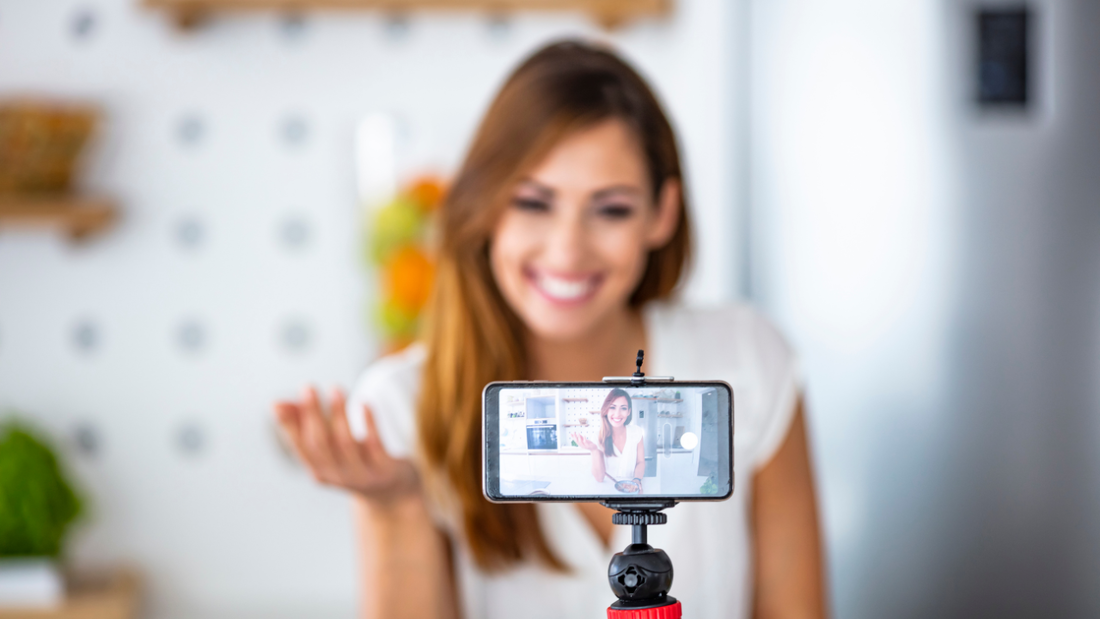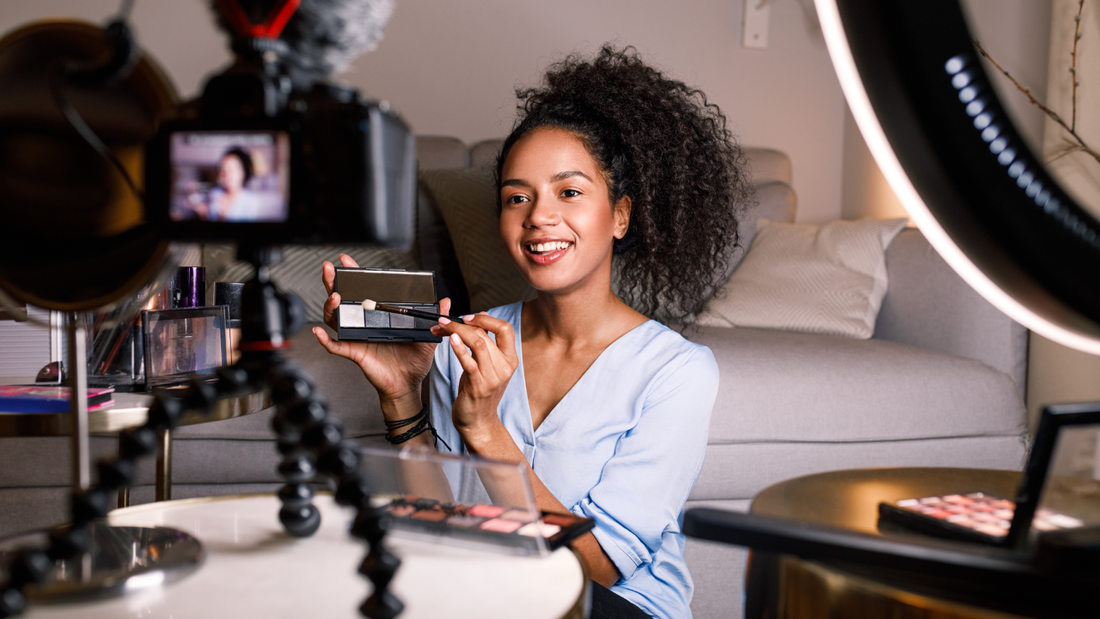|
Influencer marketing is a growing trend and a tactic that you should consider adding to your marketing mix. While it’s unlikely you’ll be hiring Kim Kardashian to represent your brand anytime soon, everyone has some degree of influence, and many will talk about your company, products and services, provided you offer the right incentive. This article will help you understand the ins-and-outs of influencer marketing and how it can help your business. What is Influencer Marketing? According to Joe Sinkwitz, founder and CEO of Intellifluence, an influencer marketing marketplace, who spoke with Small Business Trends by phone, the term just means getting someone else to spread your message for you. Sinkwitz says an influencer marketing campaign can take many forms: blogger reviews, social media mentions, celebrity endorsements and more. In some cases, content is sponsored, meaning that money changes hands. In others, the company sends products to influencers in exchange for a review. (The FTC requires explicit disclosure of compensation in these campaigns, but that doesn’t always happen, so “caveat emptor.”) How Can Influencer Marketing Help my Small Business? Influencer marketing works for three reasons: Relies on trust. It takes advantage (in a good way) of the trust influencers have earned from their constituency. Trust is valuable currency in a world where peer influence reigns supreme and leveraging it to call attention to your brand, products and services is worth the investment. Penetrates a niche. Influencer marketing relies not on breadth but depth regarding numbers — a heuristic that says it’s better to penetrate deeply into a niche market (where the person has influence) rather than shallowly across a broad market. Can be cost-effective. Influencer marketing campaigns can garner media attention without requiring a huge investment of resources. One campaign, for a coconut oil products company, received 218 mentions from influencers across blogs, social media, YouTube, Instagram and other outlets. The only expenditure was a box of sample products sent to each person, as this video reveals: You don’t necessarily have to reach out to hundreds of influencers to run a successful campaign. Depending on your market niche, even a few dozen can tip the scale in drawing consumer attention to your brand or products, bringing them to the forefront on search engines and social networks. Keep in mind that the shorter your list, the more high-profile it needs to be, so find the most authoritative people in your industry that you can. Statistics Show Influencer Marketing Potential A report from Rhythmone (PDF), an influencer marketplace, cites the following statistics as evidence of influencer marketing’s potential for success:
“Influencers draw passionate audiences that engage with their content and actively take part in the community conversations that stem from it,” the report states. That’s reason enough to try this approach, don’t you think? How Can I Use Influencer Marketing? The following five practices, contributed by Intellifluence CEO Joe Sinkwitz, can help ensure that your campaign is a success. 1. Define Your Goals Before launching an influencer marketing campaign, it’s essential to have clear, measurable goals. Are you aiming to increase brand awareness, drive sales, or promote a new product? Setting specific objectives helps in selecting the right influencers, crafting the message, and measuring the campaign’s success. For instance, if your goal is brand awareness, you might measure success by the reach and engagement of your campaign posts. On the other hand, for sales, you might track the conversion rates and ROI of the campaign. Sinkwitz advises: “If the goal is branding and visibility, finding an aspirational influencer (i.e., celebrity) would make sense given their broad reach,” he says. “If the goal is sales, develop multiple use cases in the form of buyer personas (a fictional person who represents your target market), then extrapolate using tools such as Hootsuite to figure out who is most similar to these personas.” 2. Appeal to a Sense of Authority Identifying and engaging with authoritative influencers within your niche can significantly amplify your campaign’s credibility and impact. These influencers have built trust with their audience over time, and their endorsement can serve as a powerful testament to your brand’s value. To appeal to these influencers, research their content and understand what matters to them and their followers. Tailoring your approach to align with their interests and expertise can increase your chances of forming a successful partnership. Sinkwitz says that you can take the persona approach a step further by appealing to the most authoritative among the group you discovered. “See who among the group is most authoritative on the subject you’re interested in, engage them directly and employ a peer influence strategy, which relies on the influencers to reach out to others in the target market on your behalf.” 3. Rely on the Right Channels Choosing the most effective social media channels is crucial for the success of your influencer marketing campaign. The choice of platform should be driven by where your target audience spends their time and the nature of your product or service. For B2B products, LinkedIn might be more appropriate, while consumer goods might see better engagement on Instagram or TikTok. Analyzing the demographics and user behavior on each platform will guide you in selecting the most suitable channel for your campaign. A common mistake businesses make when starting an influencer campaign is relying on the wrong channels, Sinkwitz says. “A small business selling B2B customer relationship management software probably shouldn’t be spending much time trying to increase Instagram engagement, since the buying audience is going to exist more on Twitter and LinkedIn,” he says. “Conversely, the organic tea manufacturer needs to be targeting Instagram, Pinterest, Twitter and Facebook, considering the demographics in these networks are more in line with the target audience.” Sinkwitz added that if you sell products on Amazon, you should put ample effort into getting as many reviews as possible there, then promote them on your social network channels, to drive business back to the site. 4. Agree on the Compensation Transparent and fair compensation is key to building a positive relationship with influencers. Compensation can vary widely, from free products or services to monetary payments, depending on the influencer’s reach and the complexity of the campaign. It’s important to have open discussions about expectations and deliverables to ensure both parties feel valued and satisfied. Remember, a well-compensated influencer is more likely to put genuine effort into their content, benefiting your campaign. Pitching influencers shouldn’t be a cause for consternation and panic, says Sinkwitz, who added that many small businesses “fret and undervalue their products” when reaching out to potential influencers, thinking it will require “obscene amounts of money and a year’s supply of product for coverage.” “In reality, if you’ve done your homework on picking the right influencers, the product might be sufficient compensation in and of itself since it would be a valued product in the eyes of the influencer,” he says. Sinkwitz warns that businesses should not be alarmed if an influencer demands monetary compensation in addition to products. “Just make sure of what you will be receiving in return,” he says. “Is it a well thought out video and blog post or a simple product tweet? Is the value obtained in keeping with the compensation?” 5. Combine Influencer Campaigns Into the Overall Marketing Mix Marketing professionals will tell you that no marketing tactic should exist in a vacuum, and Sinkwitz agrees. “When placed within a chain of other proven tactics, influencer marketing as a concept is almost unfair in its use of psychological triggers,” he says. “Employed correctly, it can stimulate an intense purchase desire among your target market.” Sinkwitz posits this scenario as a case in point: “Imagine what would happen if your buyer persona saw her favorite celebrity tweeting about your product, followed by a well-respected member of her community mentioning the positive attributes of your product on his blog,” he says. “She then sees a friend posting on Facebook about how great the product is and, finally, sees retargeted ads via native advertising channels promoting a discount trial offer of the product.” A celebrity endorsement combined with an authoritative review, subtle peer pressure from friends and a discount offer would be hard to resist by anyone’s standards. Such is the power of influencer marketing. Integrating influencer campaigns with other marketing efforts, such as content marketing, social media advertising, and email marketing, can create a cohesive and multi-faceted approach to reaching your audience. This integration ensures consistency in messaging and maximizes the overall impact of your marketing efforts. For example, content created by influencers can be repurposed across your brand’s social media channels, website, and email newsletters, extending the reach and life of your campaign.
Other Tips Consider these tips, in addition to the best practices listed above: Be generous. The better the “gift” you offer in your pitch, the more likely the influencer is to agree to write or, in the case of video, record a review. Go beyond the A-list. It can be difficult to get A-listers to decide to look at your product, much less write about it. That doesn’t mean you shouldn’t try. Just don’t limit yourself to them. Bloggers and social networking types further down the “long tail” can be easier to connect with and more receptive to your advances. Remember that less is more. Don’t cover every detail in your pitch. Leave room for intrigue. Often, the product will sell itself. Allow for personality. Don’t place too many constraints around what you’re asking the influencer to do. Instead, leave room for the person to make the review fit her style and personality. It will come across as more genuine and engaging that way. Use Small Business Influencer Marketplaces One way to find prospects to promote your products is through marketplaces that match companies with influencers. Quite a few exist, although not all are intended for small businesses. These three are: Intellifluence. Previously mentioned and written about here, Intellifluence is a bit more one-sided than the other marketplaces in that it allows businesses to reach out to influencers but not the other way around. Still, at $9 per month for unlimited usage it’s quite a bargain. Tomoson. For $99 per month, Tomoson lets businesses carry out up to ten campaigns with as many as 100 people. Famebit. This marketplace allows businesses to get started for free. Endorsements cost as little as $100, and campaign creators can set a budget that’s comfortable for them, review proposals from influencers and choose which platform to use for brand promotion.
ConclusionInfluencer marketing is a rapidly growing trend and a powerful strategy that you should seriously consider incorporating into your marketing mix. While you may not be able to secure celebrities like Kim Kardashian to represent your brand, influencer marketing offers numerous advantages. Influencer marketing involves leveraging individuals with varying degrees of influence to spread your brand message. These campaigns can take various forms, including blogger reviews, social media mentions, and celebrity endorsements. Compensation, whether in the form of money or products, is common in influencer marketing, although the Federal Trade Commission (FTC) mandates explicit disclosure of compensation in such campaigns. There are several compelling reasons to embrace influencer marketing:
Statistics support the potential of influencer marketing:
To ensure the success of your influencer marketing campaign, follow these practices:
Additional tips for success include being generous in your pitch, reaching beyond A-list influencers, keeping pitches concise, and allowing influencers the flexibility to incorporate their personality into their reviews. Furthermore, consider utilizing small business influencer marketplaces like Intellifluence, Tomoson, and Famebit, which can facilitate connections between your brand and potential influencers, making influencer marketing more accessible and manageable. Source: https://smallbiztrends.com Image Source: Influence Photo via Shutterstock
0 Comments
Leave a Reply. |
Membership is open to businesses and organizations interested in increasing visibility and brand awareness in Westchester County and surrounding areas.
Archives
May 2024
Categories
All
|






 RSS Feed
RSS Feed